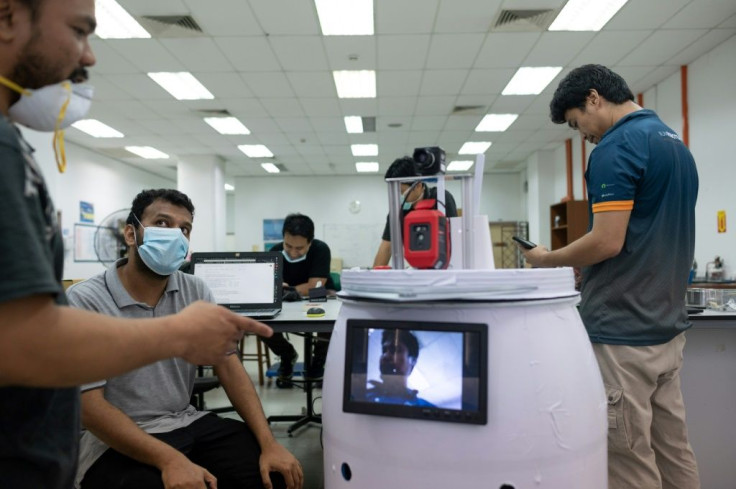How Dangerous Is Coronavirus? Americans Now Fear Infectious Diseases As Much As Terrorism, Cyberattacks, Nukes

KEY POINTS
- 79% of Americans say the spread of infectious disease is a major threat while 73% characterize terrorism that way
- 97% said international cooperation will be needed to stem the spread of infections diseases while 95% call for such cooperation to defeat terrorism
- Those who see the world economy as a threat has risen to 55% from 37% in 2017
The coronavirus pandemic has put the spread of infectious diseases at the top of Americans’ fear list, right up there with terrorism. A Pew Research Center poll indicated Monday nearly four in 10 Americans view the spread of such diseases as a bigger threat than the spread of nuclear weapons or cyberattacks.
With Saturday’s presidential approval of a disaster declaration for Wyoming, all 50 U.S. states were under disaster declarations at the same time for the first time in history. As of early afternoon Monday, more than 558,900 coronavirus infections had been confirmed in the United States with the death toll approaching 23,000 – nearly half in New York.
Nearly all U.S. adults (98%) said infectious disease represents some kind of threat, with 79% calling it a major threat. The greatest concern was among those with less education and lower incomes.
“Americans with less than a college degree are 9 percentage points more likely to be concerned about the threat of infectious disease than those who have a college degree or more education. Similarly, those who have incomes of less than $50,000 per year are 10 points more concerned about the threat posed by infectious diseases than those with higher incomes,” Pew said.
By comparison, 73% said terrorism is a major threat and 25% said it was a minor threat; 73% called nuclear weapons a major threat and 23% called it a minor threat, and 72% tagged cyberattacks from other countries a major threat while 25% called it a minor threat. That left 2% to 3% of those queried unworried by any of those issues.
The pandemic has reduced worry about longstanding conflicts between countries or ethnic groups being seen as a major threat to 39% while 42% called large numbers of immigrants a major threat.
Fully 97% of those queried said international cooperation is necessary to stem the spread of infectious diseases, compared to 95% who felt the same way about defeating terrorism and 94% who said it was necessary to stop the spread of nuclear weapons. Ninety-two percent said international cooperation was necessary to defeat cyberattacks while 82% said it was necessary to mitigate climate change.
More Americans also are looking at the condition of the global economy as a threat as a result of the pandemic, which is believed to have triggered a major global recession or possibly even a depression. Concerns have risen 18% since 2017 when it was at 37%. Now those expressing concern is at 55%.
© Copyright IBTimes 2024. All rights reserved.






















